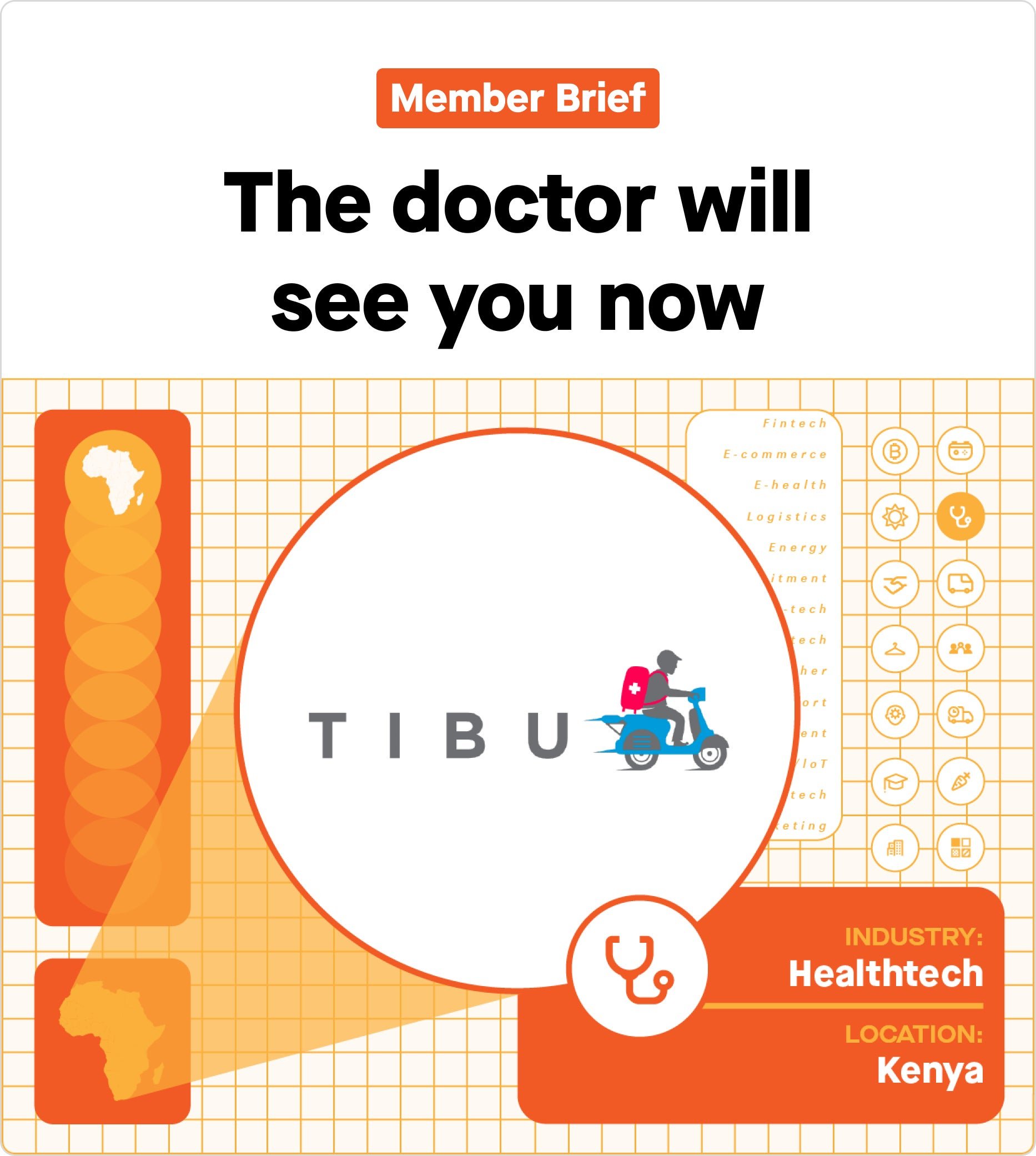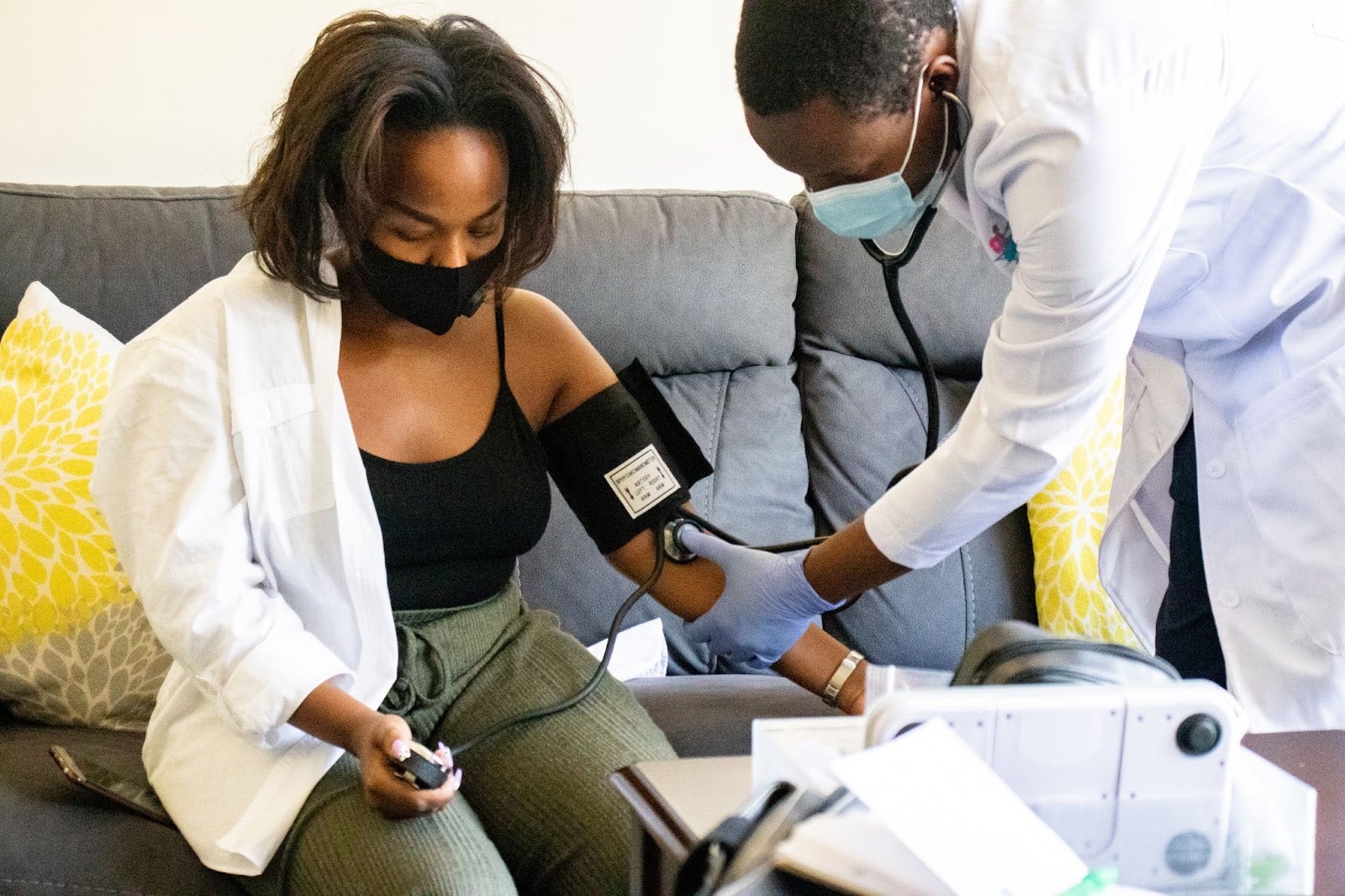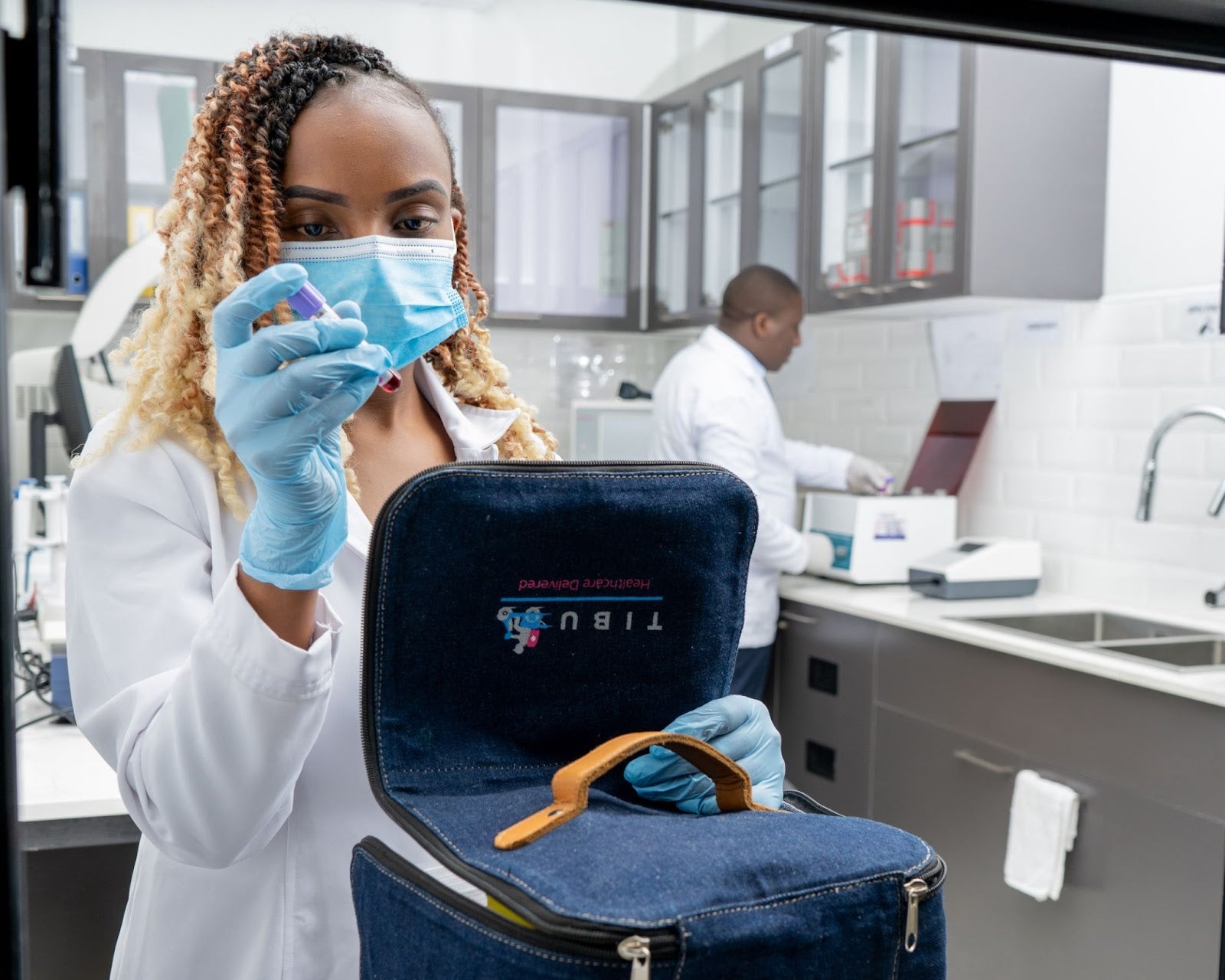✦ The doctor will see you now
Bringing healthcare to your home


Hi Quartz Africa members,
In Kenya, as elsewhere in Africa, public healthcare providers are often understaffed and lack crucial supplies and equipment. Private facilities, which step in to fill the gap, are expensive and out of reach for many.
A defining characteristic of the struggling public health system is inefficiency. Researchers assessing county hospitals between 2014 and 2018 in Kenya found that the majority of hospitals had steadily declining technical efficiency scores. The score measures how well public healthcare systems provide healthcare services (such as outpatient services and inpatient services) given the available set of inputs (such as healthcare workers and healthcare resources).
Available evidence suggests the Kenyan healthcare system performs poorly as anywhere between 20% and 50% of the resources devoted to health in Kenya are used inefficiently.
Many hospitals and specialists find themselves stretched. Poor working conditions for health workers and labor disputes constantly affect service delivery. Mounting hospital bills drive individuals and households into poverty. According to the World Bank, patients in low-income and lower-middle-income countries are less protected against high out-of-pocket (OOP) payments than those in higher-middle-income countries. An estimated 11 million Africans fall into poverty every year due to high out-of-pocket payments. The situation is especially dire for those suffering chronic conditions, which require ongoing medical attention—such as diabetes, hypertension, asthma, and HIV.
Startups operating in the fast-growing healthtech space in Africa are looking to make health systems better by offering services including tech-enabled care, telemedicine and medical supply chain solutions.
The Cheat Sheet
💡The Opportunity: Tech can enable access to quality healthcare services for millions of people in Africa.
🤔The Challenge: Sourcing health workers, getting supplies to where they’re needed, and building better tech products to make healthcare more accessible.
🗺️The Roadmap: By bringing health services including medical consultations, lab tests, and management of chronic conditions to people’s homes, startups are increasing access to healthcare and making it easier to access efficient, quality healthcare services and products fast.
💰The Stakeholders: Governments, insurers, health workers, and institutions are key to making healthtech work for Africa.
By The Digits
28: Out-of-pocket health expenditure as a percentage of current health expenditure in Kenya
2.2: Number of health facilities per 10,000 people in Kenya
11 million: Africans who fall into poverty every year due to high out-of-pocket medical payments
0.51: Number of pharmaceutical staff per 10,000 people in Kenya
1.99: Number of physicians per 10,000 people in Kenya
The Case Study
Startup: Tibu
Headquarters: Nairobi, Kenya
Sector: Healthtech
Tibu is a Nairobi-based healthtech startup whose services include home-based medical consultations, lab tests on more than 250 conditions, covid-19 testing, and vaccinations. It also has medical packages tailored to couples, expectant women, millennials, and the elderly among others, and is building proprietary medical kits to make collecting and testing samples easier.
Launched officially in early 2020 after a pilot phase, Tibu primarily serves middle-class Kenyans. It has its own lab infrastructure and employs health workers including doctors, clinical officers, and lab technologists.

CEO Jason Carmichael and CTO Peter Gicharu first came up with the idea for Tibu in 2016. Carmichael, who holds a graduate degree in public health and epidemiology, had seen firsthand the challenges facing health systems globally over the course of his career with organizations including Amref and the World Health Organization (WHO) that took him to Kenya, Senegal, the Democratic Republic of Congo, the Philippines, Mauritius, and Botswana. He noticed how opaque health systems can be both for patients and health workers.
“It’s not normal for a patient to have to lose five hours to be told to get antibiotics,” Carmichael said, referring to typical wait times in public health facilities, adding that even specialist doctors are unable to make the most productive use of their skills, since they work in hospitals overwhelmed by the sheer number of walk-ins.
Tibu claims to price its services competitively; medical consultation and test rates can be slightly cheaper than in private hospitals. For example, an at-home covid-19 PCR test at Tibu,costs Ksh 5,950 ($50), compared to Ksh6,000 if you walk into Nairobi Hospital, a leading private hospital.

Recently, Tibu rolled out special packages for patients with chronic conditions. The programs help patients manage diabetes, cholesterol, hypertension, HIV, joint and muscle pain, asthma, and allergies.
Tibu has partnerships in place with 12 insurers, including four Kenyan underwriters. The deals allow individuals with medical cover access to Tibu’s health services.
Tibu is also growing its businesses by offering health and wellness services to employers. Overall, Carmichael expects B2B to overtake B2C as the biggest contributor to the company’s earnings.
Tibu raised a seed funding round of just under $1 million in 2021 from Blue Haven Initiative and Kepple Africa Ventures, the latter a returning investor. It is planning another round this year to increase its capacity including hiring more doctors and support staff, improving its technology and boosting its business development and sales capabilities.
“We’re currently fundraising because we’re not able to keep up with the demand,” Carmichael said. The company eventually plans to expand across the continent, beginning with other east African countries.
In Conversation with

👩⚕️ On more companies signing up to Tibu’s B2B services:
Companies are associating wellness with productivity. It is very expensive to have an unhealthy workforce. More companies are seeing an investment in health and wellness as an investment in their bottomline.
📊 On protecting clients’ health data:
Our platform is compliant with both the 2019 Data Protection Act (Kenya) and GDPR. We have firewalls restricting access to patient data…Even I, as the CEO, can’t see it.
💸 On making healthcare in Kenya more efficient:
We’re reorganizing how healthcare services are delivered to save time and resources. Misuse of resources and time increases the cost of care. It is inconvenient to the patient and also to medical specialists.
Healthtech Deals to Watch
Africa healthtech startup Zuri Health raised $1.3 million in May to expand further across the continent. The service links patients with quality healthcare services via SMS, WhatsApp, and a mobile application. The startup, which launched in Kenya in 2021, has so far expanded to Ghana, Nigeria, Senegal, South Africa, Uganda, Tanzania, and Zambia.
Tech-enabled healthcare startup CarePoint, raised a $10 million bridge round in May. The round will support CarePoint’s expansion on the continent. The startup offers access to a network of clinics and telemedicine centers. It is currently available in four African markets—Egypt, Kenya, Nigeria, and Ghana.
In March 2022, Ivorian healthtech company Susu completed a $2 million pre-seed funding round with angel investors. The service offers bundled health services—allowing patients to receive structured, long-term health support including monitoring of their various conditions.
This brief was prepared by Martin Siele while listening to Form Ikijipa by Dede Tarshian, Rix Roro, and Mbogi Genje.
Have a super productive, fun week!
—Martin Siele, Nairobi-based contributor
One 🦠 thing
The pandemic accelerated the growth of the healthtech ecosystem in Africa. A 2021 report from healthcare consulting firm Salient Advisory showed more than 60 companies working to change how health products are distributed with technology-enabled solutions. This represented a more than 100% increase in the number of companies tracked since 2018. More than 40% of the companies featured were founded in the last three years.